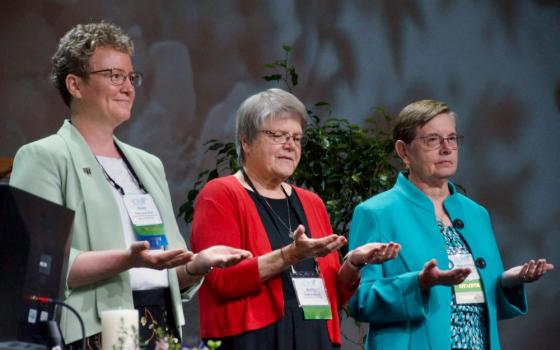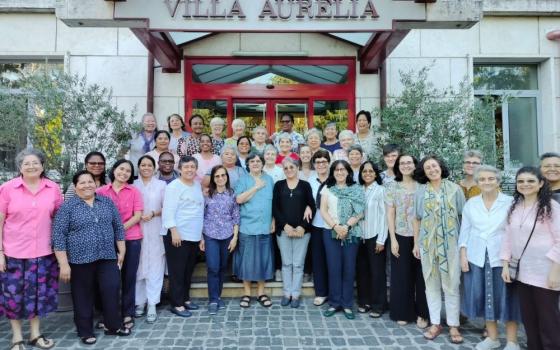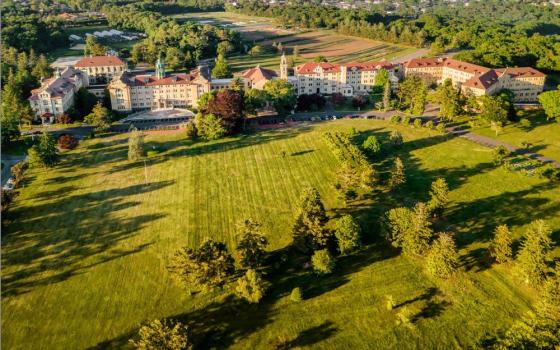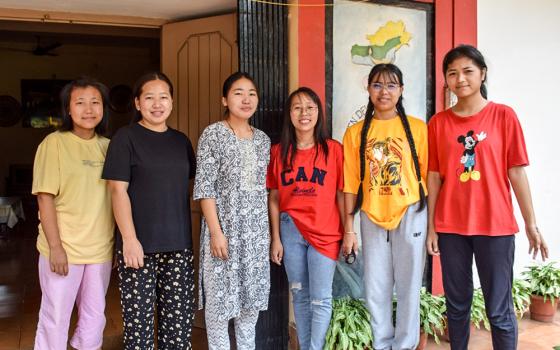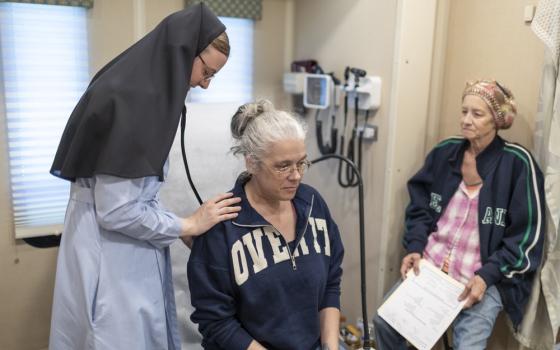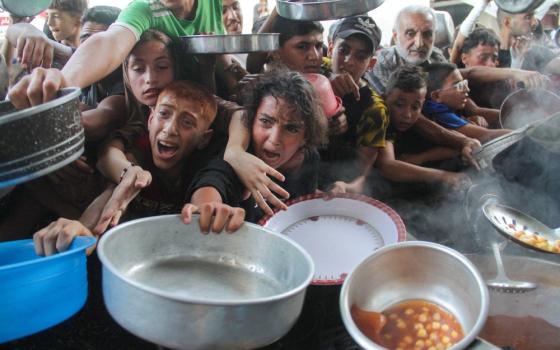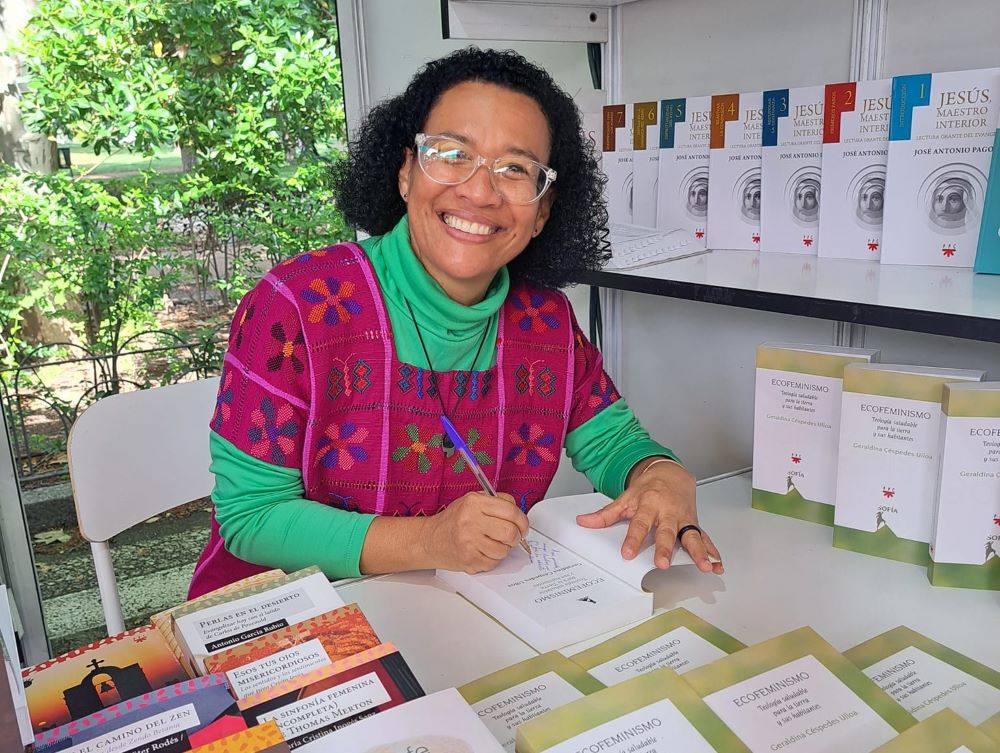
Sr. Geraldina Céspedes Ulloa presents her book Ecofeminismo during the 2023 International Book Fair in Madrid, Spain. (Courtesy of Geraldina Céspedes Ulloa)
Without leaving aside her vast missionary experience in different countries, Sr. Geraldina Céspedes Ulloa, a Dominican Missionary of the Rosary, is today dedicated to making a deeper connection between theology, equity, the socio-environmental crisis and the church's life.
"I understand faith as a path that humanizes society," Céspedes Ulloa told Global Sisters Report. "Faith has to lead us to be better human beings, in solidarity with those who suffer and with the earth."
Céspedes Ulloa is originally from the Dominican Republic and joined the Dominican Missionary Sisters in 1989. Since then, she has lived her missionary and theological vocation serving the most needy in the Dominican Republic, Mexico, Spain and Guatemala, the country she considers her new home.
"In 1993, I arrived in a war-torn Guatemala," Céspedes Ulloa said. "There, working with the victims, with the refugee return process, and participating in the reconciliation and peace initiatives, I found the mission God was asking of me."
"I am Dominican by birth, and for love, I also became a Guatemalan citizen. I consider myself a citizen of the world."
In 2002, Céspedes Ulloa was sent to Spain, where she completed her doctorate in systematic theology from Comillas Pontifical University. She returned to work in Guatemalan communities for eight years. Later, she was sent to work with Indigenous communities in Chiapas, in southern Mexico. Her congregation in 2022 elected her as general councilor for initial and continuous formation.
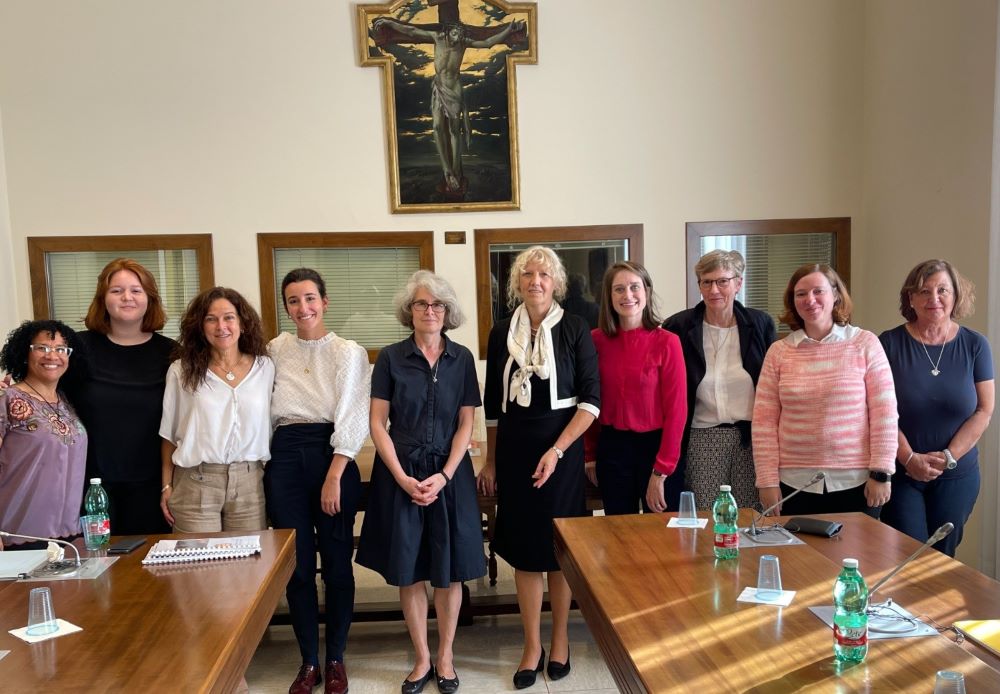
Sr. Geraldina Céspedes Ulloa, left, stands with members of the Catholic Women Council in Rome, Italy in October 2022. During the meeting with Sr. Nathalie Becquart, undersecretary of the General Secretariat of the Synod (center), they gave the Holy See their report on the status of women in the church. (Courtesy of Geraldina Céspedes Ulloa)
Her work in mission communities has allowed her to connect theology with social reality. Today, she proposes a faith option that allows a new relationship between humanity and the Common Home.
"We need to rethink theology and society. We urgently need to develop a more equitable relationship between men and women and be more respectful of Mother Earth," Céspedes Ulloa said.
Céspedes Ulloa has published more than 20 academic articles on theology, spirituality, social justice, religious life, and women in the church and society. In addition, in 2021, she published her book Ecofeminism: Healthy Theology for the Earth and its Inhabitants in Spanish, in which she proposes a theology oriented to salvation for both people and creation.
Currently, Céspedes Ulloa is a member of international theological associations that include Amerindia, the Catholic Women's Council and the Women Religious Theologians Symposium of the International Union of Superiors General, or UISG.
"Today, it is urgent to listen and make visible the voices of Indigenous peoples, youth, Afros and women," Céspedes Ulloa said. "From the faith, we must listen and respond to the cries of those who suffer and of Mother Earth."
GSR: How do you live your missionary and theological vocation?
Céspedes Ulloa: My vocation arose in the basic ecclesial communities, where I learned a lot. I became a religious missionary, and since then, I have lived my vocation, always accompanying the people in their process of liberation and autonomy. I believe that the project of Jesus is a liberating project.
I try to do a theology that inserts the Gospel in the people's realities and culture — a theology that listens to humanity's cries.
I live a theology that does not ignore the tremendous socio-environmental imbalance, nor does it ignore the crises within the church itself.
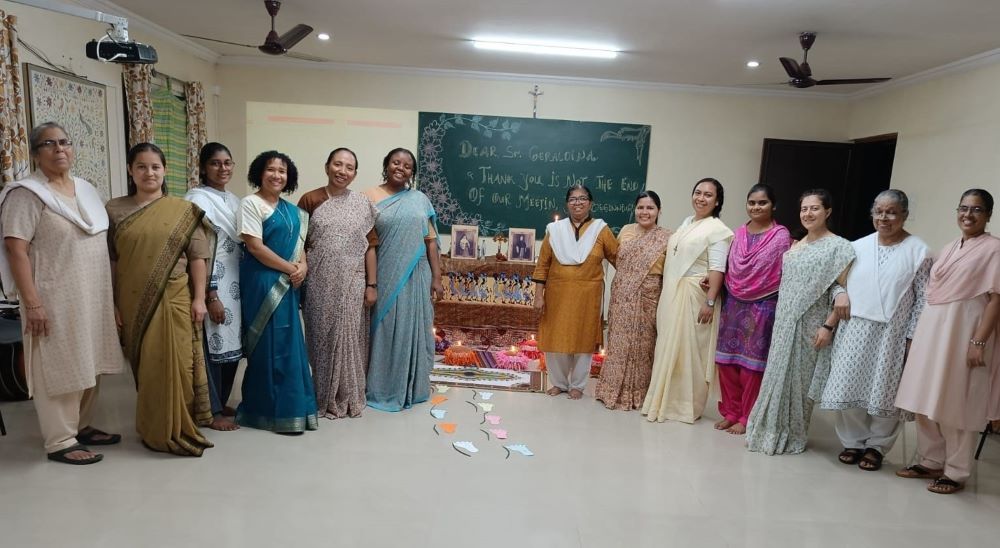
Sr. Geraldina Céspedes Ulloa (fourth from left) stands with a group of Dominican Missionary Sisters of the Rosary preparing to make their perpetual vows in Pune, India, in September 2023. (Courtesy of Geraldina Céspedes Ulloa)
What are the causes of the current socio-environmental crisis?
Patriarchal capitalism is the main root of this crisis. Today, almost everything is understood as business. It doesn't matter whether it is nature, labor or women's bodies. Everything is seen as mere merchandise.
This crisis places us amid a serious drama. We have to decide whether to make a radical change or to tear down the future for the next generations of human beings and the rest of the beings of the Common House.
What do you mean when you talk about "ecofeminism"?
This term combines the environmental movement and the feminist movement, two of the most significant current social movements. Ecofeminism adds two ideas and becomes one paradigm that gives hope to theology and society.
This proposal opens a new theological paradigm that seeks to reinterpret biblical and historical keys. It helps us build a theology more oriented to healing the earth and its inhabitants.
With ecofeminism, we seek to release two birds from the capitalist cage.
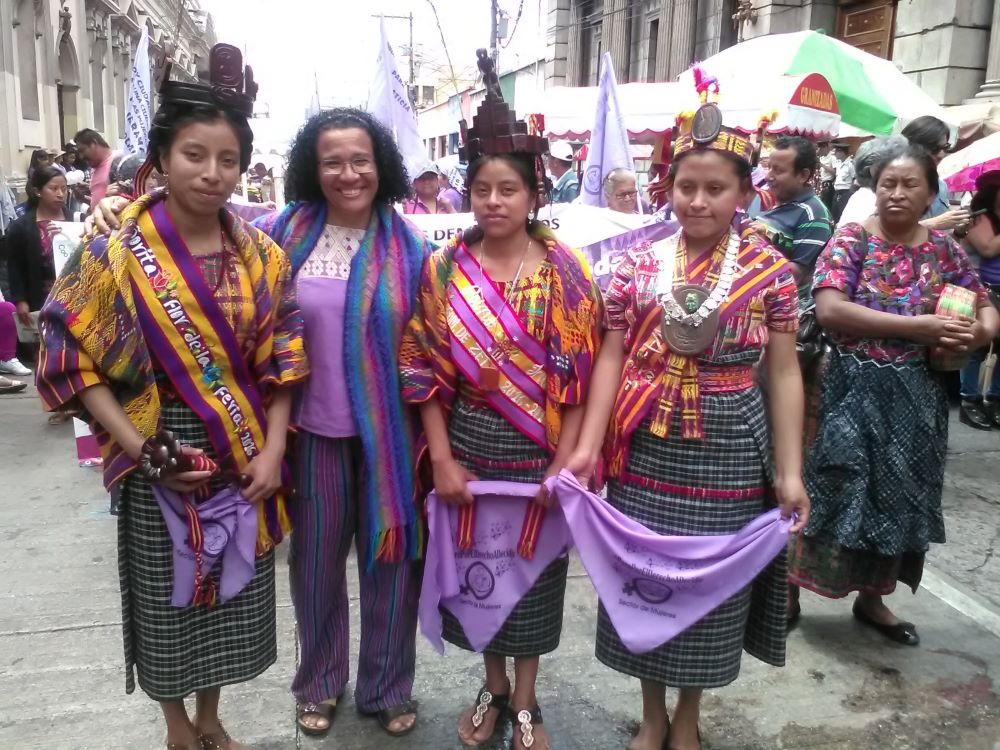
Sr. Geraldina Céspedes Ulloa participates with Caqchikel women from Guatemala in the 2019 Women's Day march in Guatemala. (Courtesy of Geraldina Céspedes Ulloa)
What do you think is women's role in society and the church?
Women have been ignored for a long time. We have not had the same opportunities as men. For example, we see the phenomenon of the feminization of poverty. It is a reality that women do not have full rights to land, a roof or a job. The same goes for education or access to technology or recreation.
Women must wake up and win equitable spaces. We cannot forget that we are all sons and daughters of God and have the same dignity.
Something similar happens in the church, where we still do not fully participate in decision-making spaces. Even though we women are the primary transmitters of the faith and sustain the life of the communities, we are second-class citizens in the church.
A change in the ecclesial model is urgently needed to overcome patriarchalism and clericalism. We must affirm that there is no synodality without including women.
Advertisement
What is your opinion on the specific role of Catholic sisters in the church?
Catholic sisters have a frontline role in the church. We always participate in the humanization and healing of many of the hurts of society.
Our vocation of service gives us a simple and honest authority. Our work is close to the people. In general, where there are Catholic sisters, there is good service and coherence in life.
It is vital that we unite and link ourselves in sisterhood. We must develop a healing and prophetic spirituality.
What church do you dream of?
I dream of a warm and welcoming church, where we all have equity and a place. I dream of a poor church in the midst of the poor. I also dream of a missionary and itinerant church.
I believe in the ruah, in the breath of the Spirit. I believe the Holy Spirit is present in the church and helps us orient our lives according to Jesus' plan.

